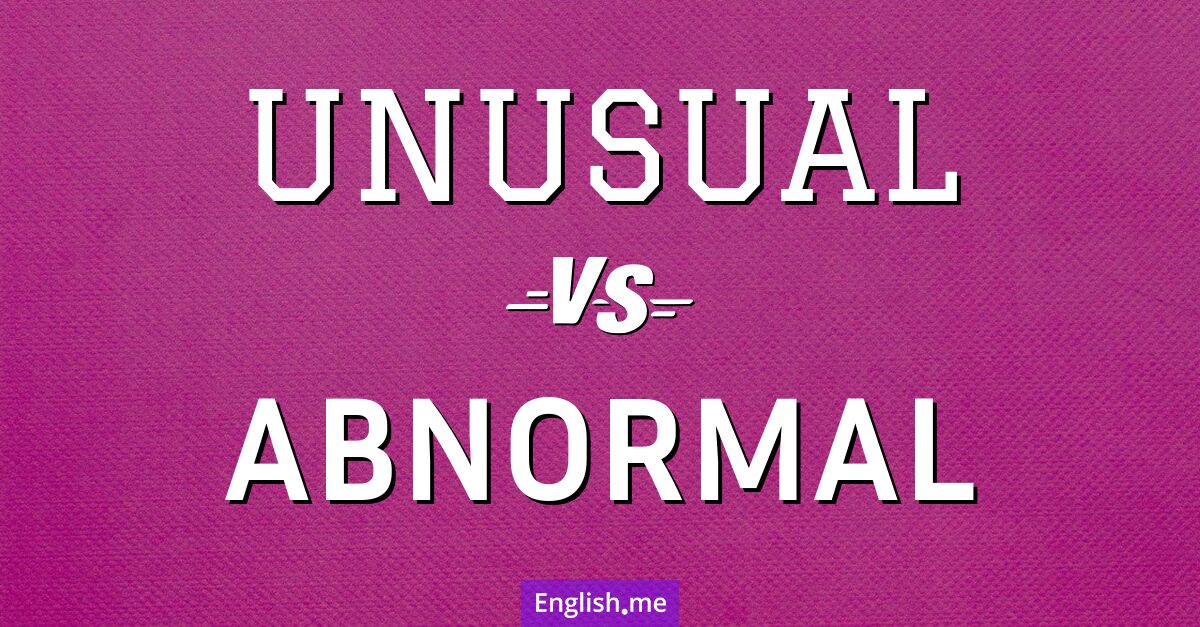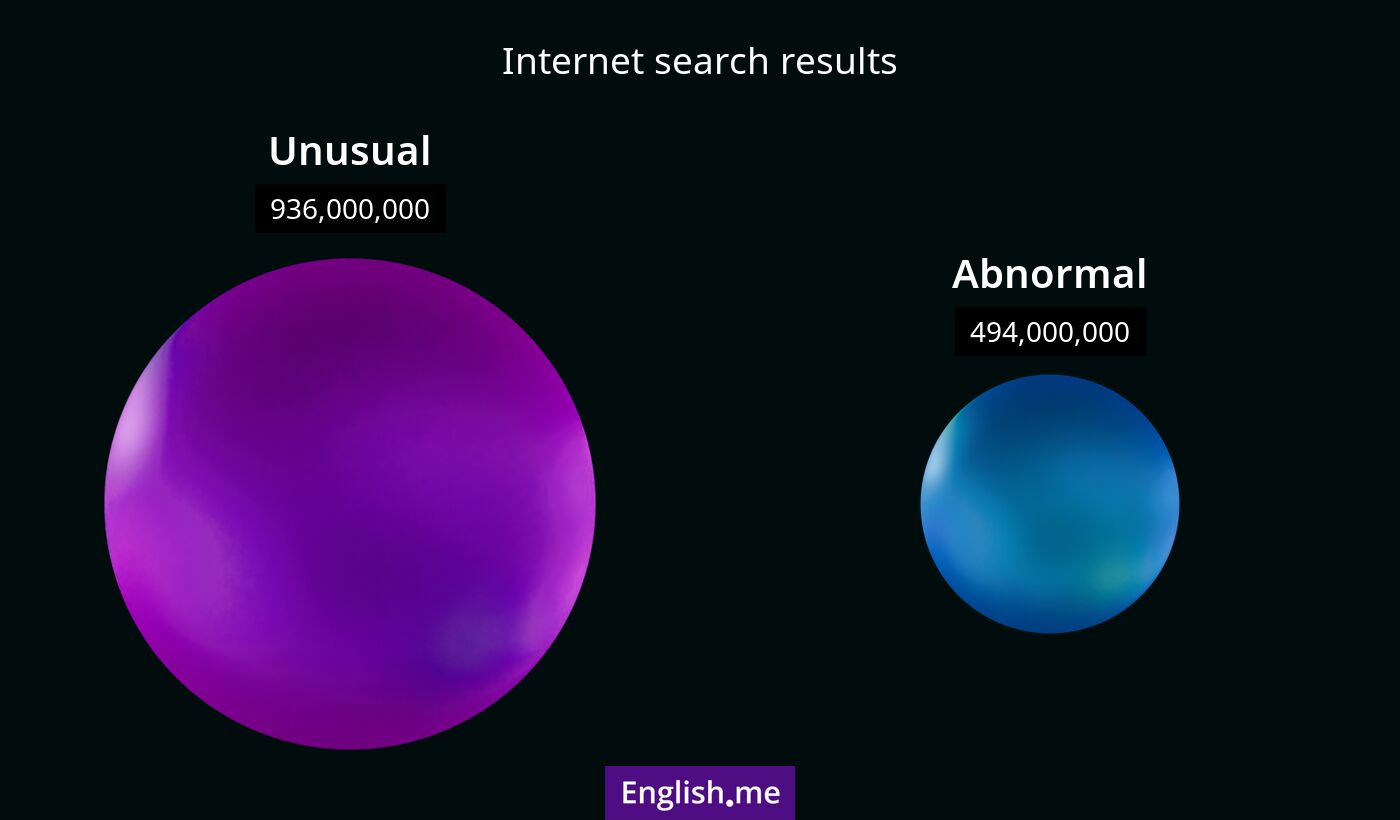"Unusual" vs. "abnormal": the nuances of the unexpected
Reviewed and edited by  Anwar Kareem 08/10/2024, 05:13
Anwar Kareem 08/10/2024, 05:13
English.me team member

 What is similar?
What is similar?
Both "unusual" and "abnormal" describe something that deviates from the norm or is not typical. Both words can often imply something unexpected or out of the ordinary.
 What is different?
What is different?
"Unusual" often has a neutral or positive connotation, suggesting something rare or interesting. "Abnormal" generally has a negative connotation, often used in contexts of health or scientific fields to imply something is outside the desired norm.
 Which one is more common?
Which one is more common?

 Examples of usage
Examples of usage
Unusual- The sky had an unusual shade of green during the storm.
- She has an unusual talent for solving complex puzzles.
- It was unusual to see snow in April in this region.
- The doctor noted an abnormal growth on the x-ray.
- His behavior was considered abnormal for someone of his age.
- They found some abnormal results in the blood test.

 English
English español
español française
française italiano
italiano deutsche
deutsche 日本語
日本語 polski
polski česky
česky svenska
svenska Türkçe
Türkçe Nederlands
Nederlands